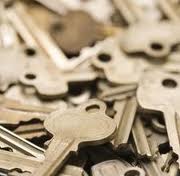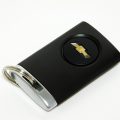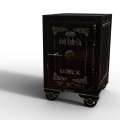- Locksmith & Home Security Technician
- Getting a career diploma in as little as 2 months.
- Gain experience with practical exercises and interactive assignments.
- Learn how to identify, create, and duplicate keys.
- Learn to work with several types of locks including safes, valuts, and auto.
- and more...

Table of Contents
1. Call a Locksmith
- Find a Reputable Locksmith: An automotive locksmith can unlock your car without causing damage. Expect to pay $50-100, depending on your car’s make and model.
- Insurance Coverage: Check if your car insurance covers locksmith services. Many policies include this benefit.
2. Contact Roadside Assistance
- Use Roadside Assistance Services: If you have roadside assistance (e.g., through your car warranty or an auto club like AAA), call them. They can send a professional to unlock your car.
- Consider a Tow Truck: In some cases, a tow truck company may also offer lockout services.
3. Call Your Car Dealership
- Dealer Assistance: Some dealerships offer lockout services, especially if you’re still within the warranty period. They may also help with remote unlocking if your car has that capability.
4. Contact Your Insurance Company
- Verify Coverage: Your insurance might cover locksmith services. If you’re unsure, call your insurance company to find out.
- Reimbursement: If you’ve already paid for locksmith services, you may be reimbursed by submitting a detailed invoice to your insurance provider.
5. Use AAA Membership
- AAA Services: If you’re a AAA member, you can call them for lockout assistance. They provide this service as part of their membership benefits.
- Membership Benefits: Depending on your membership level, you may get one free lockout service per year.
6. Call the Police (Last Resort)
- Emergency Situations: Only call the police if there’s an immediate safety risk (e.g., a child or pet locked inside). Police typically only respond to emergencies.
- Charges: While police services are free, you might have to pay for any damage caused during the unlocking process.
General Tips
- Stay Calm: Panicking can make the situation worse. Keep calm and follow the steps methodically.
- Avoid DIY Methods: Attempting to unlock the car yourself or hiring someone inexperienced can cause damage and lead to higher repair costs.
Frequently Asked Questions
What should I do if I accidentally locked my keys in the car?
First, ensure all the doors are locked and that no entry point is available.
If you have a spare key, try to get it brought to you.
If not, contact a locksmith, roadside assistance, or your car dealership.
If a child or pet is inside, call 911 immediately.
How can I avoid locking my keys in the car in the future?
Consider these preventive measures:
- Spare Key: Keep a spare key in a safe, accessible place or with a trusted person.
- Key Holder: Use a magnetic key holder and attach it to your car’s undercarriage.
- Keyless Entry: If your car has a keyless entry system, use it to avoid locking keys inside.
- Routine Check: Develop a habit of checking for your keys before closing your car doors.
How much does it typically cost to unlock a car?
The cost can vary based on your car’s make and model, as well as your location:
- Locksmith: Typically $50-100.
- Roadside Assistance: Often covered under your plan, but if not, the cost may be similar to a locksmith.
- Police: Usually free in emergency situations, but you may incur charges for any damage caused.
Can I use a credit card or other tools to unlock my car?
Using a credit card or other tools to unlock your car is generally not recommended.
Modern cars have sophisticated locking systems that are difficult to bypass without causing damage.
It’s safer and more effective to call a professional locksmith or roadside assistance to avoid potential damage to your vehicle.
What information should I provide when calling for help?
When you contact a locksmith, roadside assistance, or any other service, provide:
- Your Location: The exact address or description of where you are.
- Car Make and Model: This helps the service provider prepare for any specific requirements.
- Proof of Ownership: For some services, you might need to verify that the car is yours, such as by providing the vehicle identification number (VIN).






Leave a Reply